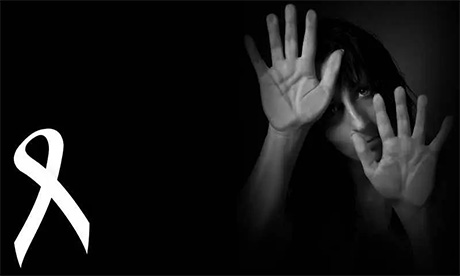There’s the Covid pandemic – we all know about that; and then there’s the hidden pandemic. That’s the one where New Zealanders bash each other up. Preferably their nearest and dearest.
The hidden pandemic’s the one Matt and Sarah Brown, founders of global anti-violence movement She Is Not Your Rehab, have spent years working to put an end to.
They have inspired a new generation of men – including many from Pacific communities to break free from the cycle of abuse by teaching them to heal from their pain.
Now they’re collaborating with government agencies, including Police, Corrections and the Battered Womens’ Trust, who make up the Canterbury Integrated Safety Response Team.
The Browns say it’s time we New Zealanders collectively own our family violence problem.
“None of us are immune to family harm, no matter what your background is. It happens in every neighbourhood,” they say.
“There’s probably someone on your street who is experiencing family harm.
“I want people to know this is very real. The reason why we call it the hidden pandemic is because we don’t talk about it often.”
One in three women experience family harm in New Zealand. Every four minutes police receive a family harm call.
Canterbury Police district senior constable Mark Boddy says the figures in his region are reflected throughout the country. Almost half all calls are family violence related.
“There have been 12,760 family violence reports this past year,” he says.
As it’s estimated only 25 percent of incidents are reported, it’s likely that there’s one incident of family violence every minute in New Zealand.
These shocking statistics are a reality for Battered Women’s Trust chief executive Lois Herbert.
She has 20 years experience in the sector and is a survivor of domestic violence.
“I was raised in a good home with a loving family. I was educated, I was white and I was working.
“I kept this violence secret for tens of years. I didn’t leave my marriage until I thought my sons were at risk and then I went.”
A letter from Christchurch resident Carol Penfold about how to raise greater awareness around family violence has gone viral on social media.
“What would happen if Ashley and Jacinda got up and talked about those statistics. Would we pull together as a nation?” she wonders.
The problem is presented as a brown problem, a poor problem. Penfold says it’s it’s not about colour – it’s “everybody’s problem..”
Corrections spokesperson Barletta Butler says over 75 percent of the prison population had convictions for violence. Many are also victims of violence.
“The starting point for putting things right is when parents – especially parents and grandfathers – model and talk with their sons and daughters about respectful, non-violent behaviour in their relationships.”
She said it was time New Zealanders understood domestic violence is an issue that goes beyond race and class.
Everyone must do their bit in reducing family harm, she says.
Where to get help:
- Women’s Refuge 24/7: 0800 733 843
- It’s Not OK: 0800 456 450
- Shine: 0508 744 633
- Victim Support: 0800 650 654
- HELP: Call 24/7, Auckland 09 623 1700; Wellington: 04 801 6655
- The National Network of Family Violence Services NZ has information on specialist family violence agencies.
Source
- RNZ
- Image: Newsroom
